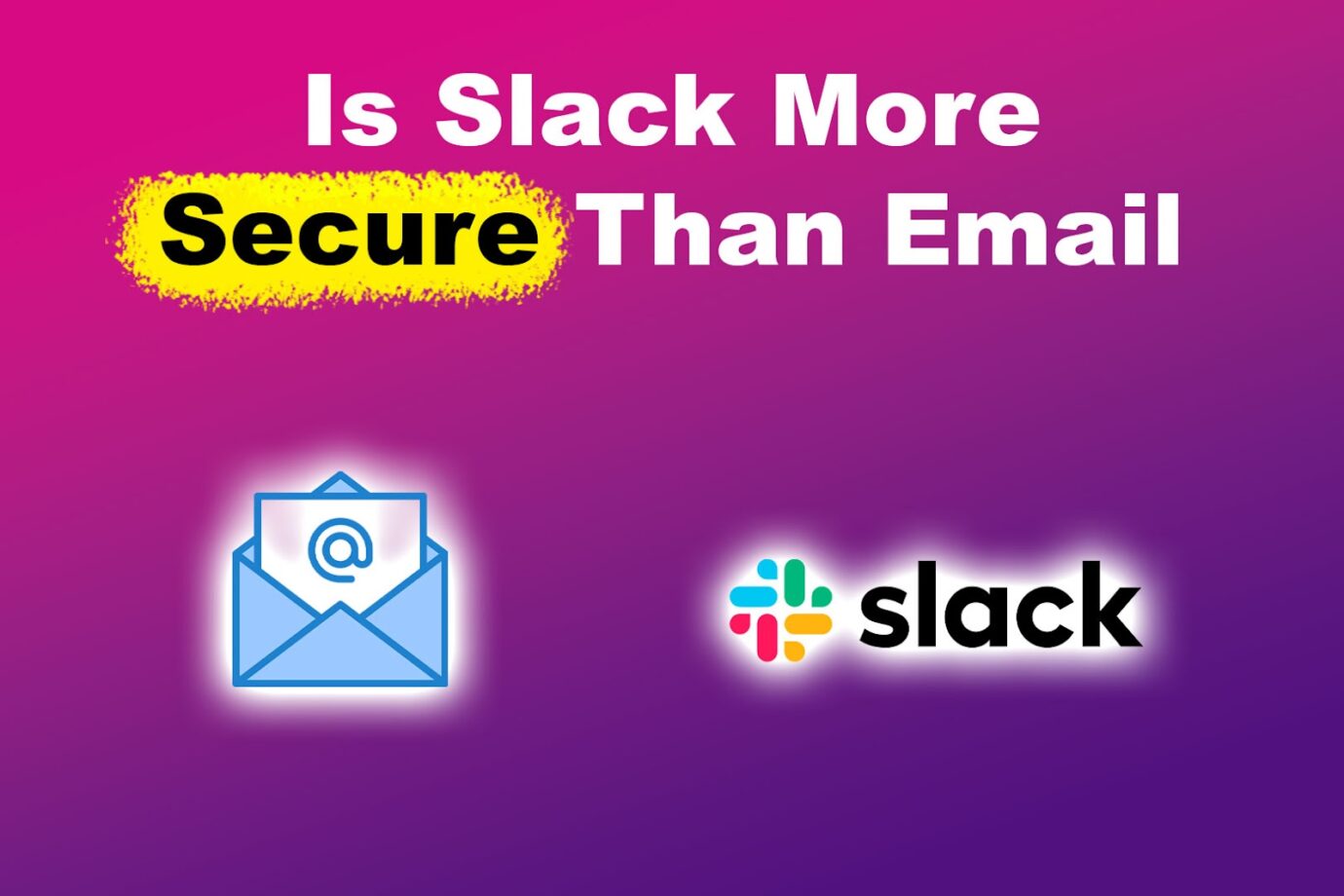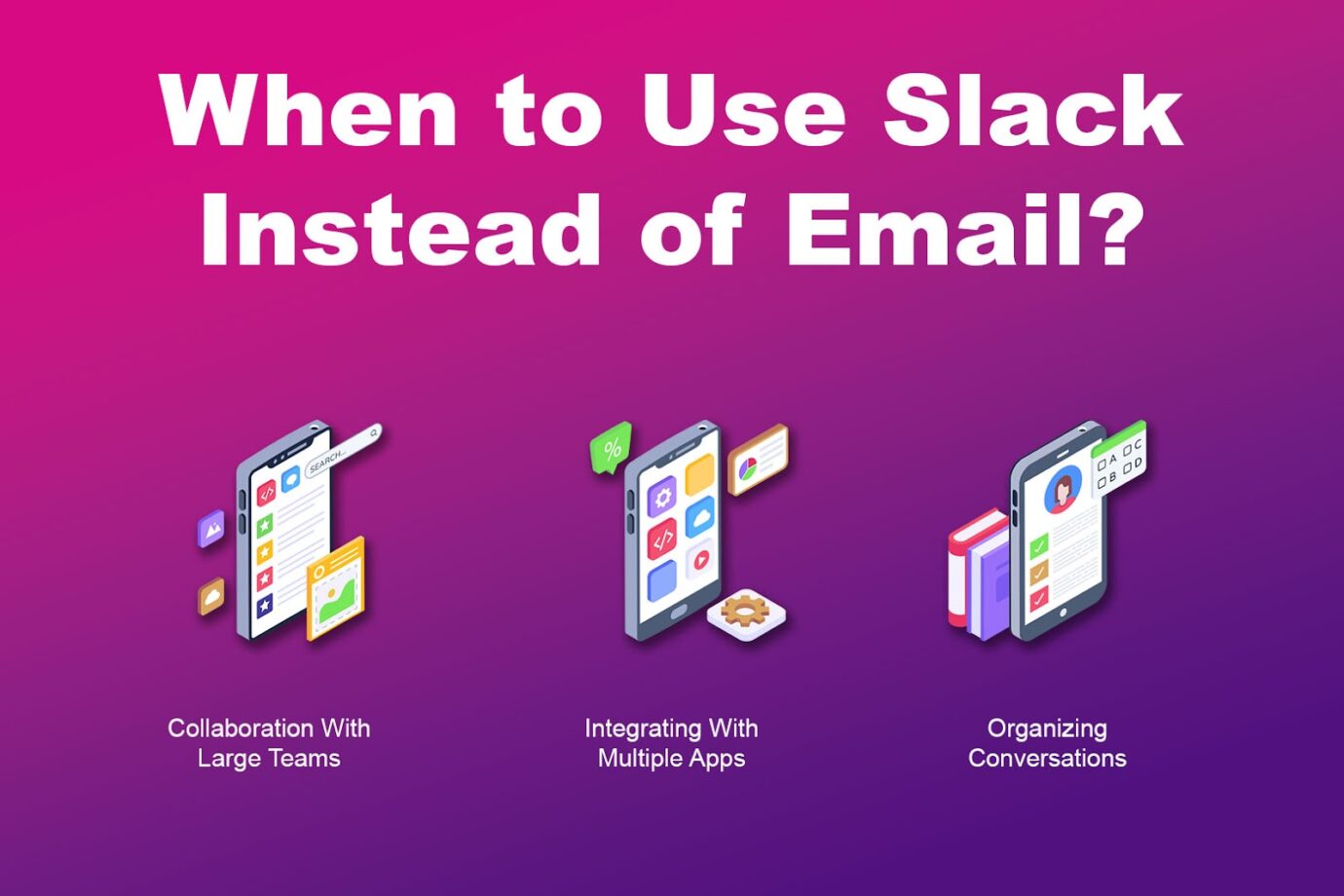When it comes to collaboration tools, security is crucial to prevent essential company data from falling into the wrong hands. Even though Slack was launched ten years ago, it is a relatively new collaboration tool compared to email, which has existed since the 1970s. This leaves us with the question: is Slack more secure than email?

Both email and Slack are important for business operations, especially remote teams. However, each one has its advantages. Keep reading to learn whether Slack is secure. We’ll also discuss when to use Slack vs. email.
Is Slack More Secure Than Email?
Yes, Slack is considerably more secure than email. Unlike emails, Slack is not affected by spam or phishing techniques, which can easily lead to data robbery. On the other hand, Slack is a centralized chat server that allows an interceptor to read an organization’s messages.
Over the years, Slack has improved its API (Application Programming Interface) to protect user data. Additionally, Slack offers end-to-end encryption for data. Email, however, uses TLS (Transport Layer Security), which is more vulnerable to attacks.
Learn how to coordinate security on Slack.
Another platform often compared to Slack is Microsoft Teams. Find out if Slack is better than Teams here.
Is Slack Secure For Business?
Yes, Slack is secure for business because of its enterprise-grade security features. It complies with the General Data Protection Regulations (GDPR) for handling and storing data. Slack can also be configured using FINRA and HIPAA. It has numerous certifications, such as SOC 2, SOC 3, and ISO/IEC 27001.
Here’s an in-depth look at some features that make Slack secure for businesses:
- Access Controls.
Slack has access controls such as two-factor authentication, SAML-based single sign-on for authenticating users, and session duration. - Enterprise Key Management.
It gives admins control over data encryption on Slack and allows you to view how your organization’s data is accessed on the platform. - Deletion of Customer Data Policy.
After a subscription lapse, Slack primary owners can delete all the business data. Slack then hard-deletes everything in 24 hours. - Data Loss Prevention (DLP).
Works to reduce the risk of sharing malicious, confidential, and personal information. It scans all messages to flag those that violate the rules. - Report a Vulnerability Program.
This program allows users to report any bugs they find, and Slack will work to fix the issue.
If you’re using Notion as your workspace, Slack is a better messaging app, as there’s a way to integrate Slack and Notion.
When to Use Slack vs Email?

Use Slack instead of email when you need real-time communication and collaboration with large teams. Slack is also a better option for organizing conversations and integrating with multiple apps.
Here’s a closer look at when to use Slack vs email:
- Real-time Communication.
Slack is an instant messaging app that allows users to get real-time replies. On the other hand, emails might take a while before someone reads your message and responds to it. - Informal Communication.
It is easier to send emojis, audio, and video clips on Slack than email. Email is better for formal announcements or newsletters. - Collaboration With Large Teams.
On Slack, you can communicate with large teams through channels across different time zones. Sending mass emails back and forth can be a little confusing. - Organizing Conversations.
Using Slack channels, you can conveniently categorize conversations for everyone on the team. This ensures all messages relevant to a particular discussion can be found anywhere. - Integrating With Multiple Apps.
Slack can connect to over 2,000 third-party apps, including calendars and other tools you rely on every day. Therefore, if you use numerous tools in your organization, Slack is a better option than email.
Discover more reasons why Slack is better than email from Slack.